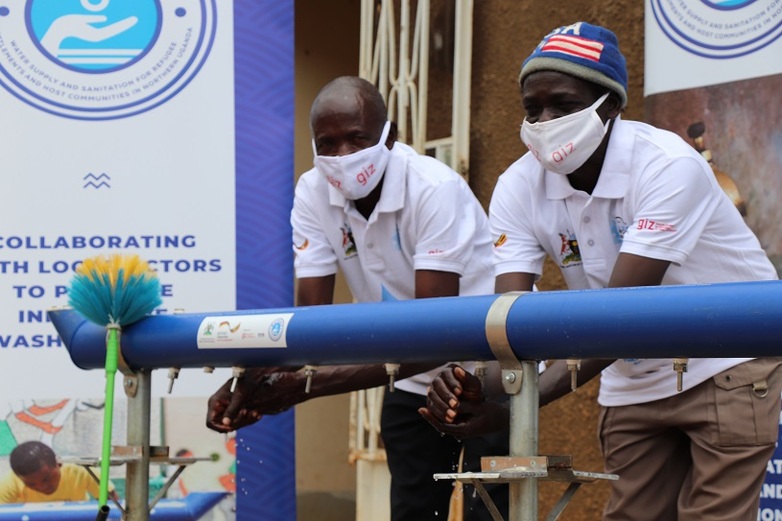Improving water supply and sanitation for refugees and host communities
Water Supply and Sanitation for Refugee Settlements and Host Communities in Northern Uganda (WatSSUP)
-
Client
German Federal Ministry for Economic Cooperation and Development (BMZ)
-
Co-financier
Austrian Development Agency (ADA)
-
Country
-
Political sponsors
More
-
Runtime
2018 to 2026
-
Involved
GFA Consulting Group GmbH
-
Products and expertise
Security, reconstruction, peace
Context
Uganda hosts more refugees than any other African country and is a pilot country for implementing the United Nations’ refugee support measures. Its integrated Water and Environment Refugee Response Plan (WESRRP) regulates the long-term supply of water and sanitation services to refugee settlements and host communities.

While humanitarian organisations largely offer short-term solutions, WESRRP facilitates the transition to the long-term provision of services by national institutions.
Objective
Selected refugee settlements and host communities are provided with water supply and sanitation services in the long term. The performance and effectiveness of national, regional and local authorities and institutions have improved.
Approach
The project supports responsible bodies and actors
- at national level: The project advises the WESRRP secretariat at the Ugandan Ministry of Water and Environment (MWE) on improving coordination between national and international stakeholders.
- at regional level: It advises decentralised MWE entities (particularly the operator organisation Northern Umbrella Water and Sanitation, NUWS) on adopting, improving and maintaining water supply systems.
- at district level: It advises local administrations in Arua, Yumbe, Madi-Okollo and Terego on optimising their water supply and sanitation services.
- at local level: It provides initial and in-service training for hand pump mechanics on operation and maintenance. It also promotes measures to improve hygiene and sanitary conditions.
The project operates at the intersection of humanitarian assistance and development cooperation in order to create long-term supply structures.
Last update: February 2025








